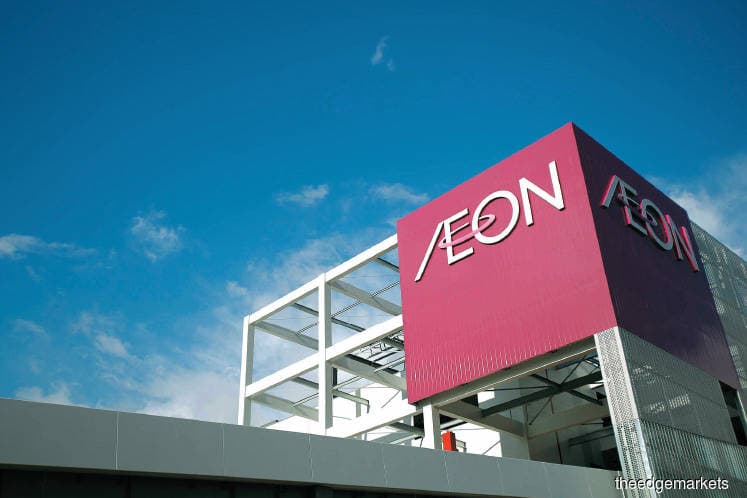
This article first appeared in The Edge Malaysia Weekly on February 24, 2020 - March 1, 2020
THE government has relaxed the rules that govern the foreign operators of large-format grocery stores, a move that could make Malaysia more attractive to foreign investors.
The revised Guidelines on Foreign Participation in the Distributive Trade Services 2020 came into effect on Jan 1.
Industry observers reckon the more flexible rules will make Tesco plc’s sale of its Malaysian venture more enticing to Thai suitors, and allow retailers such as AEON Co (M) Bhd to venture into the operating of smaller grocery stores, for instance.
Unlike local grocery operators, foreign operators are governed by a different set of rules that have always been considered strict and prohibitive. The government even dictates their operating hours to protect and grow the local retail industry.
Their operating licences are granted by the Ministry of Domestic Trade and Consumer Affairs.
Generally, Malaysia’s grocery segment can be categorised into three main sections — hypermarket, superstore and supermarket.
The floor area, goods offered and surrounding population size determine the retail category of a store. For example, hypermarkets are stores that measure 5,000 sq m and above, while superstores measure 3,000 to 4,999 sq m.
The biggest change to the guidelines covers the hypermarket and superstore businesses. These segments are currently dominated by foreign operators, including the UK’s Tesco, Hong Kong’s Dairy Farm International Holdings (DFI) Ltd, which operates Giant stores, and Japan’s AEON Co Ltd, which runs AEON BiG stores.
Previously, only hypermarkets operators, which had to have a 30% bumiputera shareholding, were allowed to open superstores. Under the new rules, foreign operators are allowed to open such stores. The population size requirement of 200,000 has been abolished, and the operators do not need to have a local partner for superstores.
They can open stores measuring as small as 1,000 sq m in urban areas, which fall under the local jurisdiction of either a city council (dewan/majlis bandaraya) or a municipal council (majlis perbandaran). A 1,000 sq m store is about the size of seven shoplots.
However, for new stores in suburban and rural areas that fall under the district council (majlis daerah), the existing rule of 3,000 to 4,999 sq m still applies.
In response to questions sent by The Edge, the domestic trade ministry says the rules were relaxed to ensure an orderly and fair development of the industry as well as to encourage modernisation and grow the economy. “Retail is a dynamic sector. The retail landscape has constantly been changing in the past few years. Some existing formats are slowing down, whereas other new formats are emerging,” the ministry says.
The revision was made after taking into account the waning popularity of hypermarkets not only in Malaysia but in neighbouring countries as well.
Over the past couple of years, hypermarket operators such as Tesco and Giant have been tweaking their stores and layout. Tesco has reorganised its stores and shrunk the retail space in at least 21 of them, while Giant is in the process of refreshing and reinvigorating its retail space to better suit current consumer trends.
How do the new guidelines affect foreign retailers?
In late December, Tesco said it was inviting bids for its retail businesses in Thailand and Malaysia. According to reports, three popular Thai groups were eyeing the market — Charoen Pokphand Group, TCC Group and Central Group. On Feb 6, a report said Tesco was asking for a second round of bids.
A lawyer and a consultant from an advisory firm told The Edge when contacted that a second round of bids is usually called when “none of the bidders meet the reserve price or terms of the tender”, or “they receive very low offers”. The Edge has learnt that the closing date for the second round of bids is end-February.
Assuming one of the Thai groups does win the bid and enters the market, as per regulations, they would need to have a 30% bumiputera or Malay partner. But the hypermarket business appears to be in a moribund state. If smaller stores are indeed the way forward, the retailer should be able to park the business under two models — hypermarket and superstore, which is currently considered the more lucrative model. Moreover, a local partner is not required for superstores.
In the event that nobody buys Tesco, the operator would logically be able to restructure and separate its businesses. As smaller stores appear to make more money, another advantage is that it will not need a local partner for them. Sime Darby Bhd is its 30% local partner.
Currently, all four foreign hypermarket players in Malaysia — Tesco, Giant, AEON BiG and Lulu — are loss making. Thus, Malaysia appears less desirable to foreign grocery retailers.
DFI’s local operator GCH Retail Malaysia Sdn Bhd has been so badly affected by the change in shopping trends that it has shut down more than five dozen stores in recent months.
The new guidelines mean that department store operator AEON Co or even players like ISETAN will be able to expand into superstores.
AEON Co, which is already operating the MaxValu chain, will not only be able to open small stores in big towns but also to venture into suburban areas.
The new ruling is also expected to help improve occupancy at malls that are suffering by bringing in big international brands as often, grocery stores pull the crowds in to malls.
Save by subscribing to us for your print and/or digital copy.
P/S: The Edge is also available on Apple's AppStore and Androids' Google Play.